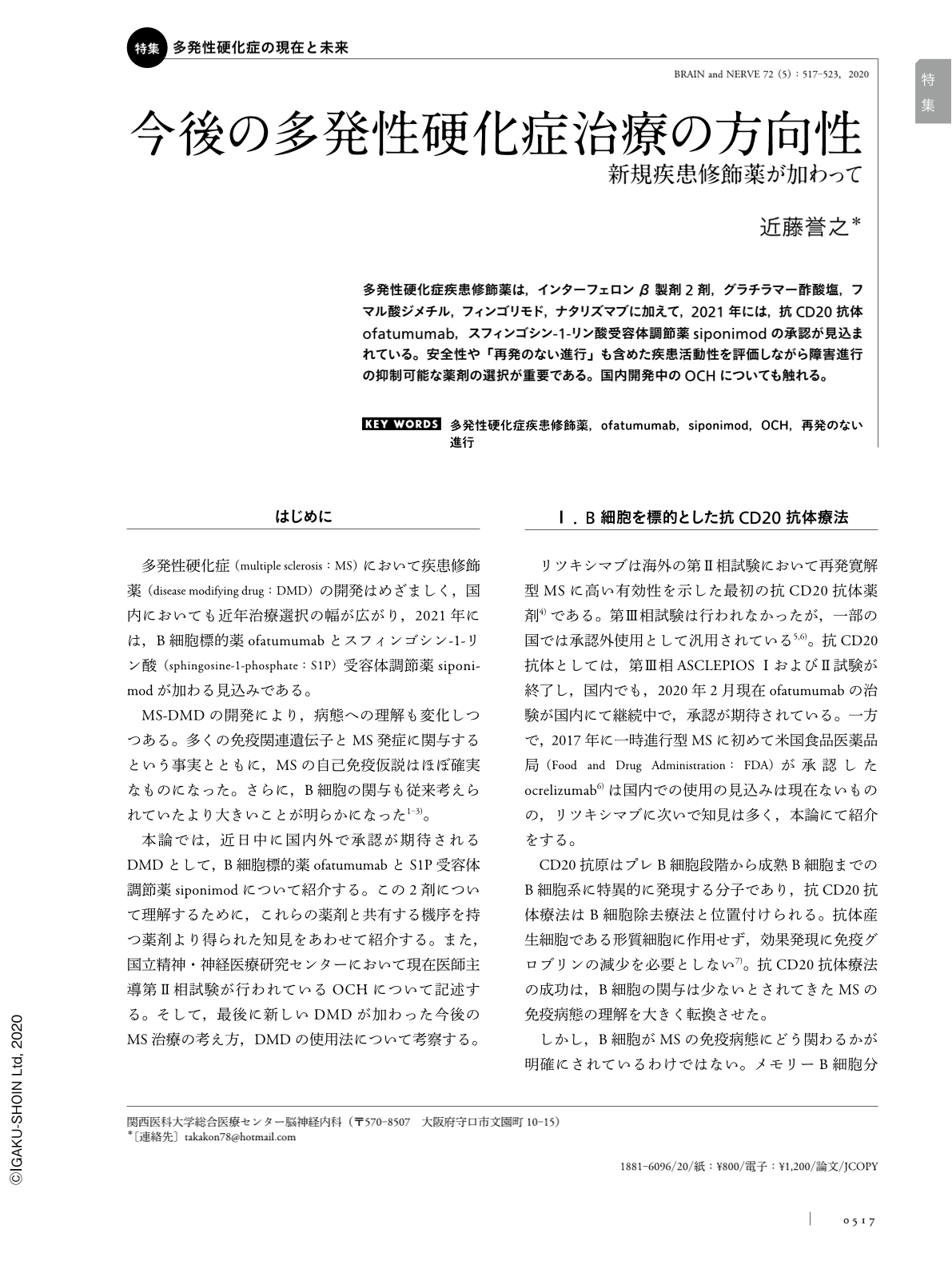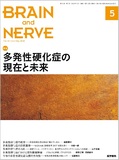Japanese
English
- 有料閲覧
- Abstract 文献概要
- 1ページ目 Look Inside
- 参考文献 Reference
多発性硬化症疾患修飾薬は,インターフェロンβ製剤2剤,グラチラマー酢酸塩,フマル酸ジメチル,フィンゴリモド,ナタリズマブに加えて,2021年には,抗CD20抗体ofatumumab,スフィンゴシン-1-リン酸受容体調節薬siponimodの承認が見込まれている。安全性や「再発のない進行」も含めた疾患活動性を評価しながら障害進行の抑制可能な薬剤の選択が重要である。国内開発中のOCHについても触れる。
Abstract
Multiple sclerosis disease modifying drugs (MS-DMD) currently used in Japan are interferon β-1a, interferon β-1b and gratiramer acetate, fingolimod, dimethyl furmarate, and natalizumab. Ofatumumab and siponimod will be approved probably in 2021. Ofatumumab is an ant-CD20 human monoclonal antibody. A clinical trial revealed that the efficacy of ofatumumab is clearly superior to teriflunomide that has comparable efficacy to dimethyl fumarate. Siponimod, a selective sphingosine-1-phosphate receptor modulator, exhibited mild, but significant efficacy for secondary progressive form of MS. OCH, a synthetic glycolipid agent, is being tested in phase II clinical trials in Japan. What DMD is to select is challenging since MS prognosis varies and is unexpected. Only very few have truly benign course without treatment. Silent progression should be considered especially in cases with those with interferon β-1a, interferon β-1b and gratiramer acetate. Escalation therapy is more widely accepted than initiation of high efficacy therapy in Japan because emphasizing safety. In such strategy three injectables and dimethyl fumarate are regarded as first line therapies. On the other hand, initiation of high efficacy drugs may be reasonable to prevent from disease progression. Even if either is acceptable, early induction of DMD with sufficient efficacy is mandatory for MS treatment.

Copyright © 2020, Igaku-Shoin Ltd. All rights reserved.


